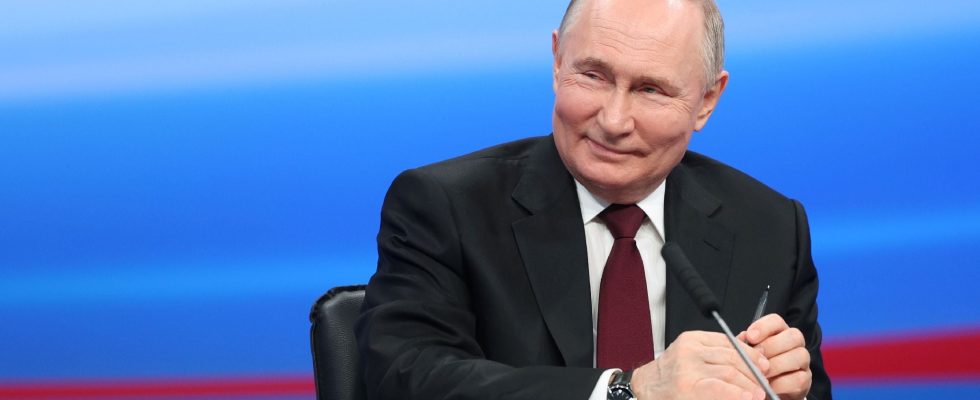The result of the vote was no mystery. This Sunday, March 17, Vladimir Putin was re-elected with 87% of the votes cast after three days of voting. “A result never seen in twenty-four years of power”, notes the Italian newspaper at the very end of the evening La Repubblica (LEFT). Especially since with his re-election, the 71-year-old head of state is now on the verge of snatching from Stalin the title of longest serving in the Kremlin. A record, noted by a large part of the foreign press since yesterday.
The Russian opposition newspaper Meduzawho had massively relayed the “Noon against Putin” initiative – consisting of going to all the polling stations on Sunday March 17 at noon and voting against Putin – rightly recalls: “Putin has been in power in Russia for almost “a quarter of a century and his next term runs until 2030, when he will be free to run for office again, thanks to constitutional amendments adopted in 2021.”
Noon against Putin, a “successful” operation
Unbreakable? Easy to be, when “the Kremlin ensures that Vladimir Putin has no credible adversary”, our colleagues from the BBC News. Especially since to pull the rug from under the feet of the opponents, the Russian authorities are full of imagination.
La Repubblica notably relays the story of Vladislav who wears a “Russia at Work” pin on his down jacket. Just 20 years old, the young man tells our colleagues that he received a thousand rubles in exchange for his vote. Or Rifat and Elvira, a couple in their thirties who were queuing to collect a blanket and a pillow: their reward “for having voted in a referendum to rename a street”, and giving their digital vote to the one they designate as “the best president in the world”. Even crazier: to ruin the “Noon against Putin” operation, the Italian daily reports that “cooking classes were organized at the Mardi Gras fairs of the Orthodox calendar”. And adding ironically: “At noon of course.”
“Noon against Putin”, an operation orchestrated by the opposition to the current head of the Kremlin, which nevertheless met with great “success”, notes The weather in Swiss. “A very simple idea” which ultimately proved “very effective”. “It is difficult this Sunday evening to measure the true scope of this action. But the images of these Russians queuing in front of the polling stations, from Siberia to Kaliningrad, are there,” rejoices the Swiss daily. And to recount the appearance in the queue at the Russian consulate in Berlin of Yulia Navalnaïa, the widow of political opponent Alexeï Navalny, who died in prison on February 17. “The highlight of the day”, sums up The weather.
An “opaque” ballot
Because this Sunday, it was impossible for the foreign press not to mention the man who was one of Vladimir Putin’s fiercest opponents: Alexeï Navalny. At past midnight, El País (center-left) is offended: in his re-election speech, the head of the Kremlin “dared to mention the name of his great political enemy for the first time since his death”.
The Spanish daily also described the vote of the last three days as an “electoral farce”, echoing the reaction of the Washington Post, in the USA. The American newspaper denounces in particular the “episodes of ballot stuffing, intimidation of voters in certain polling stations”, and the numerous “attempts at manipulation” noted by election monitoring groups in exile.
And like many other international observers, El País wonders about electronic voting, described as “opaque”. The newspaper makes a point of denouncing a “very suspect electoral system” within which “Putin’s rivals were crushed”: “the security forces and their judges leave no room for peaceful protest”, which ultimately makes it impossible for “voters dissatisfied with the Kremlin” to express their anger through gestures that are as symbolic as they are harmless.
For specialized media Politicothere is “no doubt”: “Putin will use the result as proof of mass support. Because “although it is an obvious circus, the Kremlin may not care as much “, our colleagues from the European edition of Politico are convinced.
After carefully following Vladimir Putin’s press conference, the New York Times estimated that the head of the Kremlin had appeared “more emboldened than ever, strengthening his confrontation with the West and showing his desire to continue the escalation of tensions”. And to join, like many others, the conclusion of the Italian daily La Repubblica : “The West will have to deal with the former KGB agent for a long time to come.”
